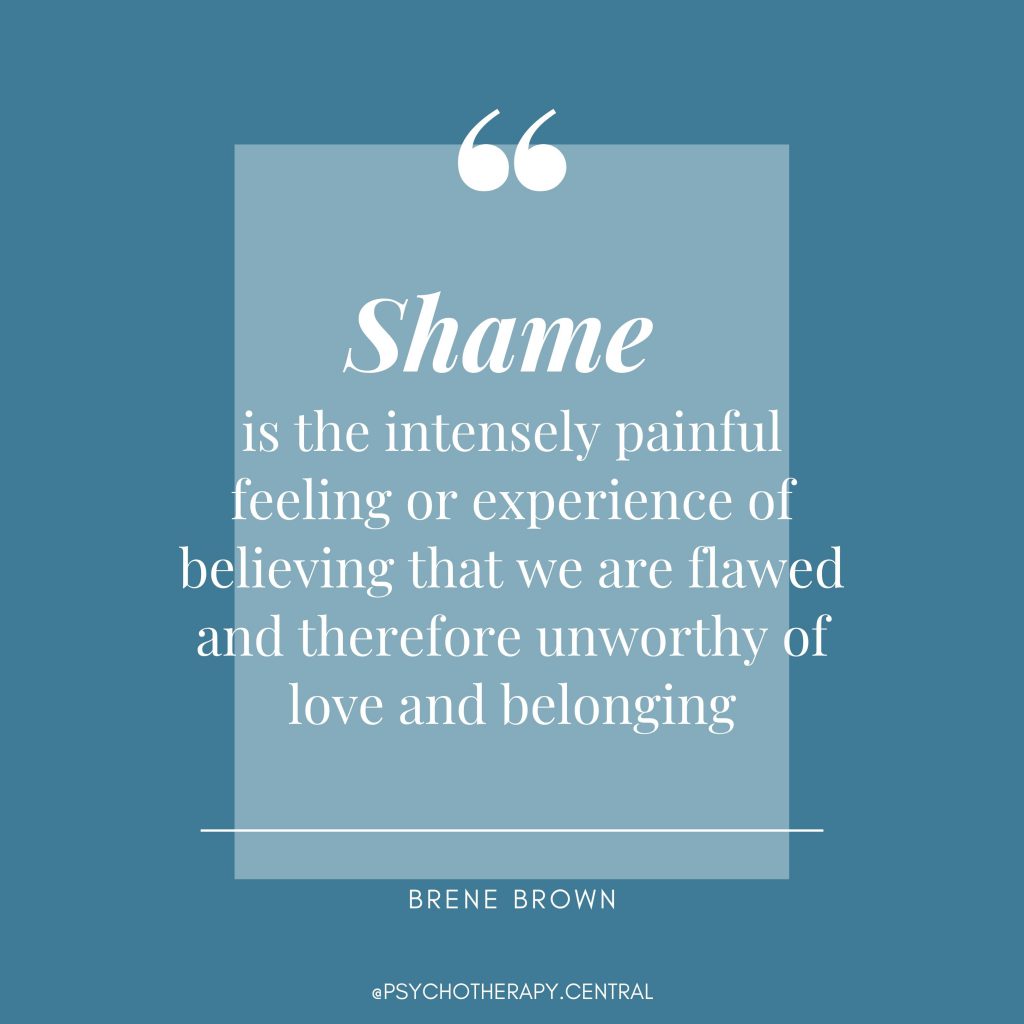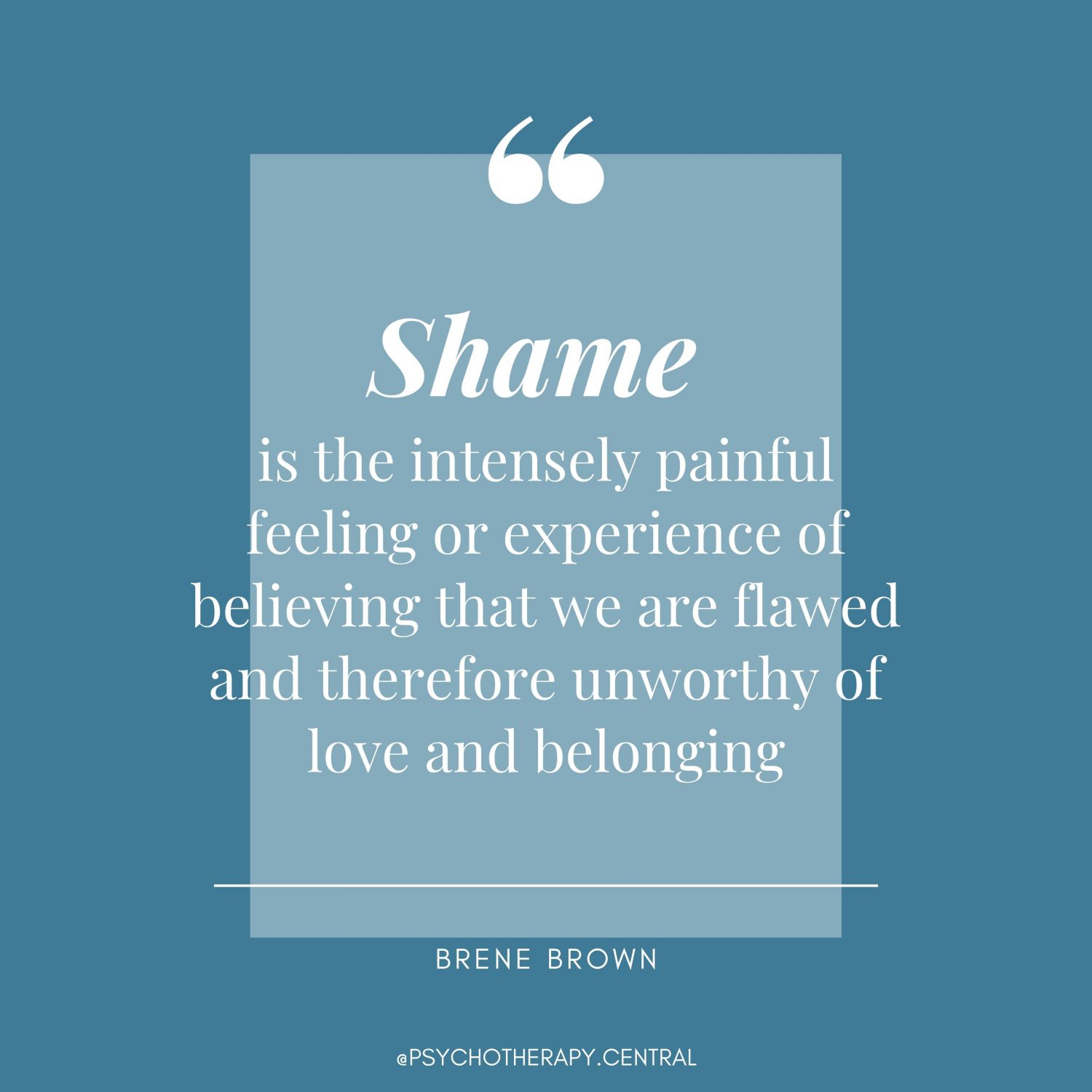Shame is a painful emotion that is created because of a sense of failure to meet a certain standard. It sounds like:
“I’m a failure, I’m a terrible person, I’m useless”. They are absolute statements about the self that make us want to hide. If it is left unresolved, shame can lead to feelings of anxiety, low self-esteem and depression.
‘Shame is the fear of disconnection’ (Brene Brown). Connection to others gives us purpose and meaning, it is ingrained in our DNA. In the past, if we were disconnected, we were likely to die. Shame makes us think that we are not worthy of love and connection. It is easy to think that shame is only experienced by people who experienced trauma, but that is not true. Research shows that the experience of shame is UNIVERSAL and cross-cultural.
In Brene Brown’s research she identified twelve core areas where people feel shame:
- Appearance and body image
- Money and work
- Motherhood/Fatherhood
- Family
- Parenting
- Mental and physical health
- Addiction
- Sex
- Aging
- Religion
- Surviving Trauma
- Being stereotyped or labelled
- Shame is often hidden…for different people shame hides in different places:
- Shame is being bankrupt
- Shame is losing my job
- Shame is being infertile
- Shame is shouting at my kids
- Shame is being 15 kilos overweight
- Shame is being on antidepressants
Shame is difficult to talk about for obvious reasons…we feel shame about the topic we are discussing. Over the next few days I will be sharing some research-based ideas to effectively diffuse shame.

Reference: Brown, B. (2012). Daring Greatly. Penguin Books: UK.
